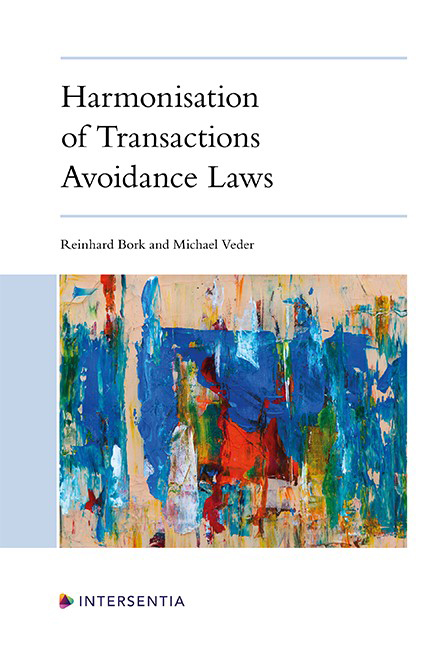Germany
Published online by Cambridge University Press: 26 May 2022
Summary
A. INSOLVENCY LAW OF GERMANY
In Germany, transactions avoidance is entirely and exclusively regulated in §§129 – 147 Insolvency Regulation (Insolvenzordnung, InsO). These norms apply to all insolvency proceedings, regardless of whether the debtor is a natural person or a legal entity, and covers both entrepreneurs and consumers.
B. SCOPE
To begin with, German transactions avoidance law meets nearly all prerequisites of the proposed Model Law. Hence, it would not change the scope of the current law at all.
C. GENERAL PREREQUISITES (§1 MODEL LAW)
German transactions avoidance law distinguishes general prerequisites (§129 InsO) from avoidance grounds (§§130 – 142 InsO) and legal consequences (§§143 – 147 InsO). As regards general prerequisites, §129 InsO requires a transaction performed prior to the opening of insolvency proceedings which is detrimental to the general body of creditors.
The definition of “transaction” in §129 InsO includes forbearance and transactions by the opponent or third parties. Transactions avoidance is restricted to transactions performed prior to the opening of proceedings. For the relevant point in time, the completion of the transaction is decisive (§140 InsO).
D. AVOIDANCE GROUNDS
1) GENERAL
German transactions avoidance law provides for a choice of avoidance grounds, among them preferences (§§130, 131 InsO), transactions at an undervalue (§134 InsO), and transactions intentionally disadvantaging creditors (§133 InsO).
2) PREFERENCES (§§2, 3 MODEL LAW)
Principally, the German rules on preferences (§§130, 131 InsO) match more or less §2 Model Law. §§130, 131 InsO cover satisfaction as well as collateralisation regardless of the acting party. They include satisfaction by individual enforcement, set-off, and other transactions, and distinguish between congruent (§130 InsO) and incongruent coverages (§131 InsO). They do not expressly mention acts benefitting a creditor “in any other way”; however, voidable under §§130, 131 InsO are not only acts which grant satisfaction or collateralisation, but also acts that enable satisfaction or collateralisation, which typically covers acts benefitting a creditor “in any other way”.
- Type
- Chapter
- Information
- Harmonisation of Transactions Avoidance Laws , pp. 393 - 398Publisher: IntersentiaPrint publication year: 2022



